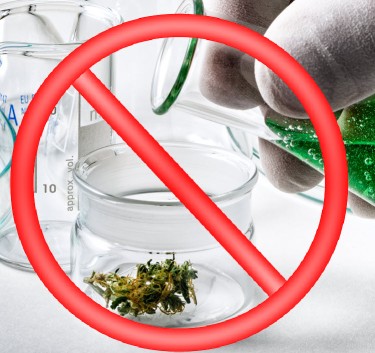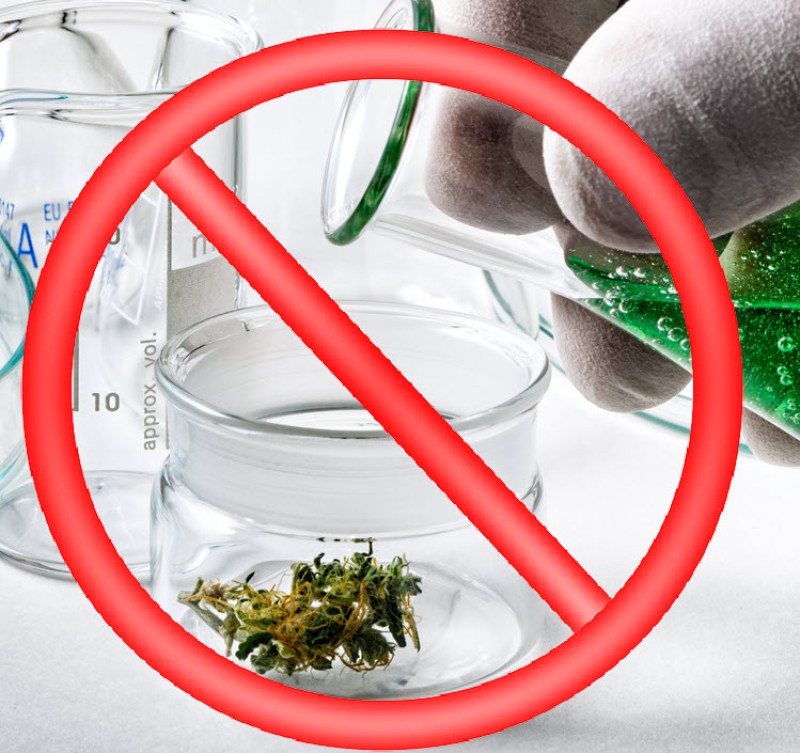
US Federal Health Agency Wants To Know What Barriers Are Hindering Marijuana Research
Last week, the National Institutes of Health (NIH), a federal health agency in the US, published a request for information, reports Marijuana Moment.
Entitled: “Investigators’ interests in and barriers to research studies on the health effects of cannabis and its constituents,” the notice states that the NIH acknowledges that 8 of their agencies are cooperating with the new efforts to determine what exactly is hindering research on the current Schedule 1 status of marijuana. They also want information on the limitations known about the products that are available for clinical trial use.
“Cannabis has been used medicinally for over 3,000 years,” explains the NIH. “Recently, there has been growing interest from health care providers and the public in the potential medicinal properties of cannabis-related products,” it reads.
Despite the fact that marijuana has been legalized in a majority of states (and continues to grow), plus the Food and Drug Administration has already approved the distribution and use of cannabinoid-based medications for certain conditions, the government’s stance on marijuana remains the same; as the NIH says, there is “often inadequate scientific research to support the benefit of their intended use” even in states where the plant is legal.
The NIH is the primary federal health agency in the United States, with 27 various institutes underneath them. The notice indicated that there were 8 that were joining the efforts such as others that want to increase studies in minor cannabinoids and even terpenes. This is not the first time that the NIH posted a notice about more research into cannabinoids, but researchers and scientists are still facing numerous hurdles.
Bureaucratic Hurdles?
It’s no secret that researchers in the United States who wish to study cannabis are frustrated. The cannabis industry in the country is booming to say the least, and there are thousands of products to study. However, the federal status of marijuana prevents them from doing so.
A majority of studies focusing on marijuana’s therapeutic benefits have done so using synthetic versions of cannabinoids, and there are only a handful of studies analyzing the benefits of whole plant medicine for the management of chronic pain. Unfortunately, the lack of clinical studies analyzing cannabis that has actually been purchased from dispensaries is astounding.
Sure, consumers can self-medicate and do their own research. There’s not much of an impact here for recreational users. But the benefits of clinical studies would be tremendous for medical patients: clinical studies could save lives discussing dosage, exact cannabinoid therapies, specific ailments, potential side effects, and much more. Not all brands take the liberty of providing their customers with a Certificate of Analysis, and countless more take advantage of the fact that THC and CBD products are not regulated.
Without third-party laboratory testing, there’s no way for us consumers to really know what’s in each cannabis product we buy in a dispensary. Even when we buy flower, it would be helpful to know the cannabinoid and terpene profile as well as if there are any potentially dangerous contaminants such as pesticides, residual solvents, and metals. These are critical for medical marijuana patients or those who already have an immunocompromised system.
When scientists conduct clinical analysis of products the way they do with legal medications, we can have peace of mind that what we are buying is actually clean medicine.
“NIH is seeking to better understand these issues and potentially develop strategies to overcome them,” said the request for information. “To that end, NIH seeks input from the research community regarding these and additional barriers, scientific interests, and needs related to therapeutic cannabis or cannabinoid research,” it continues.
Poor Quality Cannabis Being Researched
For several years now, scientists and researchers have been complaining about the potency and quality of marijuana grown at the University of Mississippi. It’s the only legal type of cannabis that they can study, thanks to their contract with the National Institute on Drug Abuse (NIDA).
The cannabis that comes from the University of Mississippi is highly processed, has much lower THC than what is available in legal marijuana markets, and researchers have even come across mold growth. On top of that, the weed is immediately dried after it’s harvested then stored for months, sometimes even years, in a freezer. Anyone can tell you that freezing marijuana is not the best way to preserve its quality – and this is what the researchers are being forced to study.
The DEA has approved new manufacturers but the NIH wants to obtain a new contractor to supply marijuana for studies. Even then, researchers should legally be able to obtain cannabis sold in licensed dispensaries so that the findings of studies are more accurately represented.
Researchers interested in studying the plant will still need to get the green light from not one but three federal agencies, plus they have to fund it. Because of this, consumers and medical providers alike struggle to get an accurate picture of the benefits as well as potential risks of the vast variety of marijuana products that are legally available out there.
It seemed promising when President Joe Biden signed a bill last year that had provisions enabling researchers to study real marijuana that is available at state-legal dispensaries. Unfortunately, the bill focused too much on the legislation’s long term plans instead of immediately providing scientists with access to the plant.
Actions from the top are urgently needed to make these necessary changes for the entire industry, consumers, and medical providers.
HOW THE GOVERNMENT BLOCKS CANNABIS RESEARCH, READ ON...
HOW THE NIDA BLOCKS MEDICAL CANNABIS RESEARCH OVER AND OVER!






